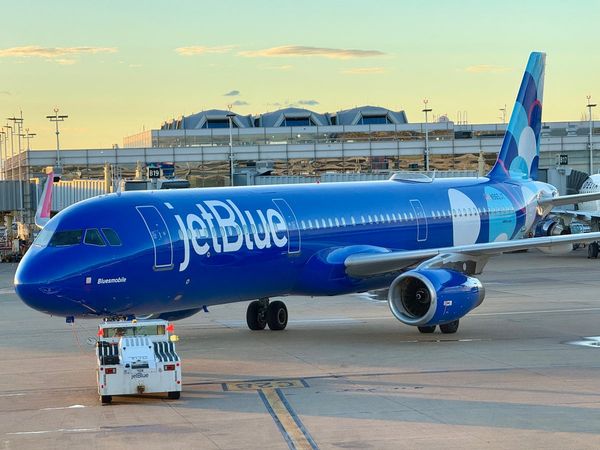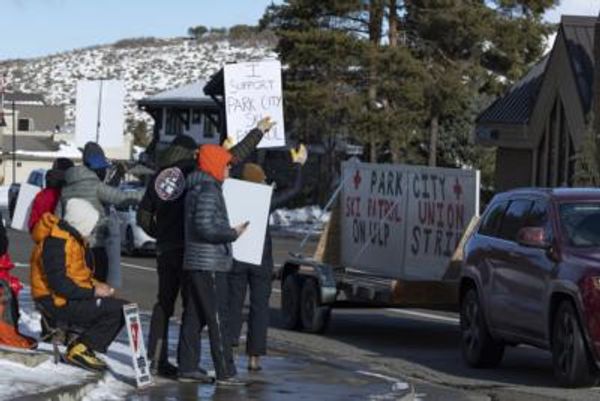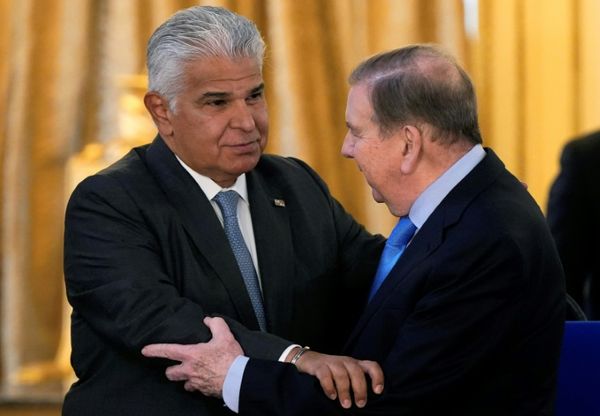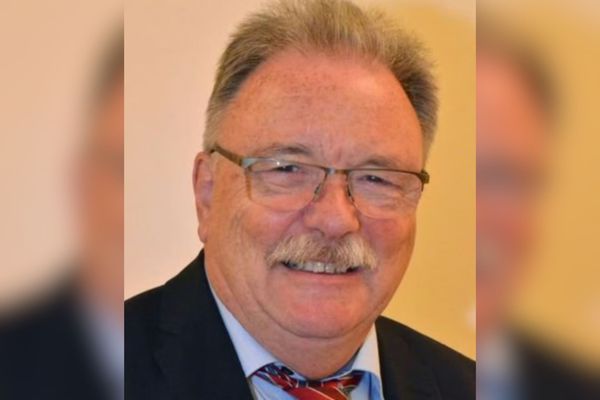
Police have already arrested one person on suspicion of support for a proscribed organisation, as a pro-Palestine march ending near the Israeli embassy begins.
More than 200,000 gathered for the demonstration according to a spokesman for the Palestine Solidarity Campaign, and the march kicked off at 1.30pm on Saturday, south of Marble Arch.
The Metropolitan Police said the start time allowed for a synagogue event to finish.
The force posted on X, formerly Twitter, just before 1pm on Saturday, saying: "The march is forming up at the south of Park Lane. It will not set off until 1.30pm.
"There has been one arrest so far on suspicion of support for a proscribed organisation in relation to a placard."
Pro-Palestinian protesters will demonstrate near the Israeli embassy for the second time since the October 7 attacks, but cannot begin until an event at a synagogue along the route has finished.
Between 200,000 and 250,000 people are expected to gather for the demonstration in central London, a spokesman for the Palestine Solidarity Campaign said.
Around 1,500 police officers from forces across the UK will be on public order duties during the demonstration.
The march will began south of Marble Arch at 1.30pm and set off along Park Lane, then Knightsbridge and Kensington Road ending at the junction with Kensington Court where speeches will take place.
According to the Campaign Against Antisemitism, organisers have advertised a start time of 12.30pm – but police say this is the form-up time and protesters will not be allowed to start marching for another hour.
The CAS said: “In previous weeks, the marches have included people supporting Hamas and openly flaunting their anti-Jewish racism, and congregants leaving synagogue had to walk through them.”
Speakers will address crowds near the Israeli embassy and they must stop by 5pm, while protesters must leave by 6pm, police said.
The Met said “there will be some who ask why” a decision to allow the protest so close to the embassy was allowed but that it is a “common misconception” that forces can allow or refuse permission for a protest to take place.
A static rally was held near the embassy on October 9.
“A real risk of serious disorder” sufficient for the Met to request that the Home Secretary ban the protest has not been seen at recent demonstrations and is not expected on Saturday, it added.
Protesters will be kept more than 100m away from the embassy grounds, behind barriers controlled by officers and face arrest if they do not do so.
Precautions have also been taken to ensure the presence of protesters does not unnecessarily disrupt other sensitive premises, including synagogues, either near the start or along the route.
Conditions under Section 12 of the Public Order Act meaning that any person participating in the march must not deviate from the route.
Police have also said no gazebos or other stalls can be erected in a specified area at Marble Arch.
The use of further police powers will be kept under review.
All officers “will be briefed to be on the lookout for offensive placards and banners” and police teams will monitor CCTV of the demonstration as it happens.
Commander Kyle Gordon, who will lead the policing operation, said: “We are there to ensure protests take place lawfully, minimising disruption to the life of the wider public and in a way that gives due consideration to the cumulative impact on London’s communities and those who feel most vulnerable in the current climate.
“The protests we have seen since October have thankfully been largely peaceful and we must take this into account in our policing approach.
“I hope the same will be true this Saturday.
“Unfortunately, despite this, we have regularly seen officers having to deal with offences related to placards and other hate speech.
“We do not underestimate the fear this causes, nor the impact of such criminal and unacceptable behaviour on wider community relations.
“I would appeal to all those attending the protest on Saturday to act within the law and to consider the impact of their actions on the safety and security of others. We will not hesitate to take action against those who fail to do so.”
At least 28,663 Palestinians have been killed in Gaza since Israel began its military operation in the strip in October in response to the October 7 attacks, where militants killed some 1,200 people and took another 250 hostage.
Israel is being urged not to send ground forces into Rafah on the Egyptian border, where many of the strip’s citizens are now living after areas closer to their homes became engulfed by fighting.
PSC director Ben Jamal said: “At each stage of Israel’s genocidal attack on Gaza we’ve seen horrors that we never thought possible.
“The images this week from Israel’s bombardment of Rafah, of children with limbs torn apart, should be seared on the conscience of the world.
“Despite mounting pressure from world leaders, and in defiance of the ICJ ruling, the Israeli government has made clear that it is about to launch an attack on Rafah that will lead to unprecedented levels of carnage.
“The moral imperative is clear.
“An immediate ceasefire is a simple, absolute necessity.
“The legal imperative is also clear, the UK must abide by its responsibilities under the Genocide Convention to cease any activities that make it complicit.
“Our government and opposition are guilty of an historic failure of leadership and principle.
“They have chosen to take the side of those committing genocide over those who are its victims, and over the demands of international law.
“We, with the majority of people in the UK, will continue to hold them to account on our marches, protests, campaigns and in the voting booths.”







